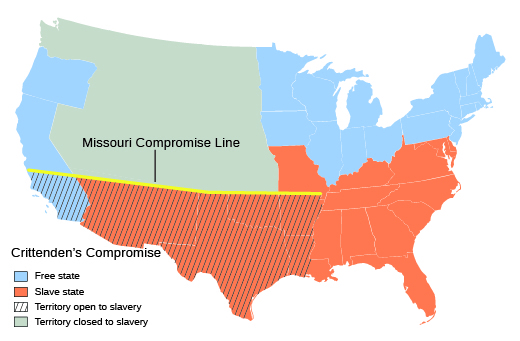| << Chapter < Page | Chapter >> Page > |
The small but very vocal abolitionist movement further contributed to the escalating tensions between the North and the South. Since the 1830s, abolitionists, led by journalist and reformer William Lloyd Garrison, had cast slavery as a national sin and called for its immediate end. For three decades, the abolitionists—a minority even within the antislavery movement—had had a significant effect on American society by bringing the evils of slavery into the public consciousness. By the 1850s, some of the most radical abolitionists, such as John Brown, had resorted to violence in their efforts to destroy the institution of slavery.
The formation of the Liberty Party (1840), the Free-Soil Party (1848), and the Republican Party (1854), all of which strongly opposed the spread of slavery to the West, brought the question solidly into the political arena. Although not all those who opposed the westward expansion of slavery had a strong abolitionist bent, the attempt to limit slaveholders’ control of their human property stiffened the resolve of southern leaders to defend their society at all costs. Prohibiting slavery’s expansion, they argued, ran counter to fundamental American property rights. Across the country, people of all political stripes worried that the nation’s arguments would cause irreparable rifts in the country.
Despite the ruptures and tensions, by the 1860s, some hope of healing the nation still existed. Before Lincoln took office, John Crittenden, a senator from Kentucky who had helped form the Constitutional Union Party during the 1860 presidential election, attempted to diffuse the explosive situation by offering six constitutional amendments and a series of resolutions, known as the Crittenden Compromise . Crittenden’s goal was to keep the South from seceding, and his strategy was to transform the Constitution to explicitly protect slavery forever. Specifically, Crittenden proposed an amendment that would restore the 36°30′ line from the Missouri Compromise and extend it all the way to the Pacific Ocean, protecting and ensuring slavery south of the line while prohibiting it north of the line ( [link] ). He further proposed an amendment that would prohibit Congress from abolishing slavery anywhere it already existed or from interfering with the interstate slave trade.

Republicans, including President-elect Lincoln, rejected Crittenden’s proposals because they ran counter to the party’s goal of keeping slavery out of the territories. The southern states also rejected Crittenden’s attempts at compromise, because it would prevent slaveholders from taking their human chattel north of the 36°30′ line. On December 20, 1860, only a few days after Crittenden’s proposal was introduced in Congress, South Carolina began the march towards war when it seceded from the United States. Three more states of the Deep South—Mississippi, Florida, and Alabama—seceded before the U.S. Senate rejected Crittenden’s proposal on January 16, 1861. Georgia, Louisiana, and Texas joined them in rapid succession on January 19, January 26, and February 1, respectively ( [link] ). In many cases, these secessions occurred after extremely divided conventions and popular votes. A lack of unanimity prevailed in much of the South.

Notification Switch
Would you like to follow the 'U.s. history' conversation and receive update notifications?